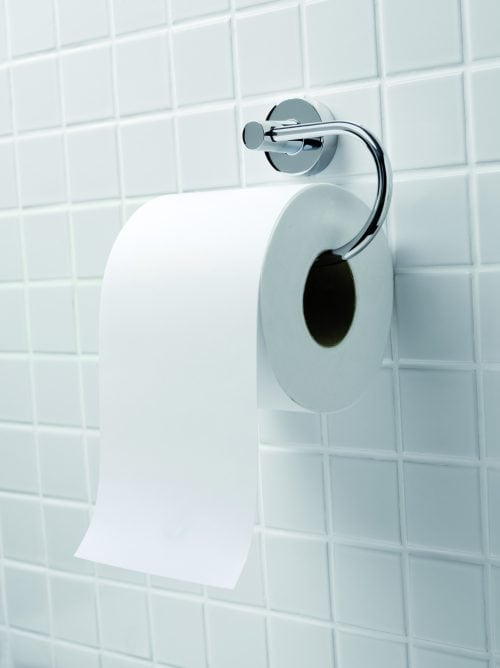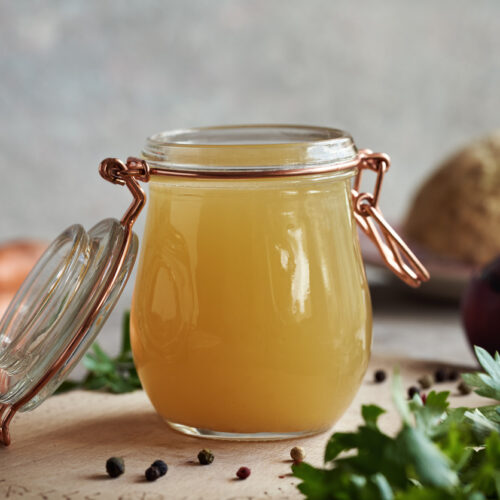
Poo may not be the most pleasant of subjects, but it can reveal a lot about your health. Nutritionist Bobbie Crothers explains.
Look before you flush!
Taking notice of your poo can help your health professional diagnose potential health issues:
- Coeliac disease: One of the more under-diagnosed conditions, coeliac disease is on the rise.
- Digestive tract diseases: Irritable Bowel Syndrome (IBS) may affect one in five people. Symptoms include constant, and sometimes alternating, bouts of constipation and diarrhoea.
- Colorectal/bowel cancer: Colorectal cancer is one of the most common types of cancer..
- Viruses and infections: Bouts of gastroenteritis can affect consistency and frequency.
- Dehydration: Dehydration can be a symptom of other illnesses, and may suggest something is amiss in your body.
- Bacterial imbalances in the bowel: This can be a sign of poor diet or ill health. Keep reading to find out what is considered ‘normal’.
So what is normal?
Did you know that ‘checking’ before you flush is considered one of the first preventative measures against bowel cancer? Poo (stools) isn’t a terribly nice thing to talk about, but knowing what’s normal and what’s not can help diagnose everything from dehydration to dietary intolerances, so it’s important to be informed.
Understandably, most of us don’t talk about poo too often – so how are you expected to know what’s normal and what’s not? Keep an eye out for the following key indicators.
Smell
While a normal bowel movement may not be accompanied by the most pleasant smell, there shouldn’t be an extremely offensive odour.
The good bacteria in our intestines are partly responsible for the smell. They ferment the fibre in our large intestine, producing gases such as hydrogen sulphide (the ‘bad’ smelling gas). Certain components of meals such as spices, protein, onion and garlic can intensify this smell, but this isn’t anything to worry about.
Stools that don’t smell ‘normal’, however, may be suggestive of an underlying condition such as malabsorption issues in the case of undiagnosed coeliac disease. It’s worthwhile mentioning the smell to your doctor.
Buoyancy
So what does it mean if your poo floats or sinks? Many people assume that sinking is an indication of a healthy fibre intake, as fibre adds bulk (and therefore weight). On the other hand, others believe that adequate fibre causes poo to float due to the increased amount of gas trapped in the stool. But according to Dr Joanne Slavin, professor of Food Science and Nutrition at the University of Minnesota and fibre expert, there isn’t enough research on the topic to confirm this.
However, what is known is when the body doesn’t properly absorb fat, this usually indicates malabsorption issues and the fat is passed into your poo, making it float. Visit your doctor if you’re regularly passing ‘floaters’.
Colour
The colour of your stool can tell you many things. Brown, its normal colour, is due to the excretion of bilirubin – a pigment released when the body destroys worn out red blood cells.
If your gall bladder is not working properly or it’s blocked (as is the case with gallstones), your stools may not contain bilirubin, making them a greyish-white colour.
The other major cause of discoloured faeces is blood. This is not normal which is why, if for no other reason, you should always look in the toilet bowl. If you see bright-red blood in your poo, this usually indicates that it has come from your anus, possibly due to haemorrhoids or an anal fissure. A slightly darker red or even black colour means the bleeding is coming from higher up in your digestive system and could indicate bowel cancer or other health issues. If you see blood in your poo, do not ignore it – see your doctor straight away.
On a lighter note, food colouring – blue food colouring in particular – can sometimes cause poo to be an abnormal colour.
Shape
The shape of your poo can tell you many things, believe it or not. Healthy poo is shaped like a sausage and easily passed. Small, hard pebbles, poos with cracks on the surface, or poos which are lumpy, suggest you are not getting enough fibre and/or fluid. This type of stool is generally a sign of constipation, so drink more water and choose foods with a high water content such as vegetables and fruits.
At the other end of the spectrum, poos that are watery or resemble diarrhoea may indicate a dietary intolerance or an infection, so speak to your doctor if this continues for more than a day.
Size
Once again, a sausage is a good comparison when it comes to normal stool size. Unsurprisingly, the foods we eat are the main factor when it comes to size, with undigested food – the fibre component of food – responsible for the bulkiness. If your poos aren’t the right consistency or size, one of the best things you can do is up your intake of whole grain breads, legumes, fruit and vegetables. Choose a high-fibre breakfast cereal containing wheat bran: studies have shown that wheat bran is the most effective cereal fibre when it comes to promoting regularity.
Consistency
Waste is in liquid form when it moves from the small intestine to the bowel. But once in the bowel, a lot of this liquid is absorbed back into the body, leaving behind a firm faecal mass.
The ideal stool has a smooth, soft consistency, but sometimes, things can go wrong. Mushy or liquid stools indicate diarrhoea, and also suggests the faecal matter has moved too quickly through the bowels. This can be caused by poor diet, food intolerances or you may have picked up a nasty bug – all of which can result in poor absorption of nutrients (and worse). Be sure to see a doctor if diarrhoea continues for a few days. Also, avoid eating too much fruit or raw vegetables and drinking juice, as these can exacerbate the situation.
Most importantly, keep your fluids up with water, tea, soups and even sports drinks (they will help rehydrate you and replace some of the lost electrolytes, like sodium and potassium). Probiotics can also help put back good bacteria in your bowels so include them in your diet.
Frequency
How often you have a bowel movement is very individual and ‘normal’ is really what is normal for you. Although there isn’t too much research on the topic, one recent study published in the International Journal of Gastroenterology and Hepatology found a once-daily bowel movement most common among the nearly 2000 participants surveyed. Only 40 per cent of men and 33 per cent of women surveyed experienced this, however, with just seven per cent of men and four per cent of women reporting an average of twice or thrice daily bowel habits – so it does vary. A second study also showed higher frequency is associated with vegetarianism, especially veganism, vigorous exercise in women and unsurprisingly, higher intakes of dietary fibre and fluids.
Regardless of lifestyle choices, a minimum of three bowel movements a week is generally considered healthy.
Bristol stool chart
The consistency of our poo depends on how long it has spent in the colon. The longer it spends ‘in transit’, the more liquid is absorbed by the colon. The Bristol stool chart is a general guide. Types 1 and 2 indicate constipation. Types 3 and 4 are the easiest to pass. Types 5 and 6 may indicate diarrhoea. Type 7 may be a sign of illness, for example food poisoning.
Passing wind
Q: How often should you pass wind?
A: The first thing you need to know when it comes to flatulence is that it is completely normal. The average adult passes between 500-2000ml gas daily, which works out as between 10-30 ‘episodes’ a day.
Q: What if passing wind happens more or less than ‘normal’?
A: Passing more or less wind than the average adult isn’t necessarily anything to worry about. Generally, the more fibre in your diet, the more gas produced. Increased flatulence or abnormally-smelling gas, however, can also be a sign of coeliac disease, lactose intolerance or other issues caused by nutrients ending up in the bowel due to malabsorption in the small intestine. If you are concerned, see a doctor.
Q: Is ‘holding it in’ really bad for you?
A: Resisting the urge to pass wind may feel like the right thing to do in social situations. But holding it in is uncomfortable and can cause bloating. Do it at your own risk! Also see our article; Facts on farting!
Foods to boost your digestive health
- Fluids: Water is best, but tea, juice and foods with high water content (fresh fruit and vegetables) can help.
- Fibre: All kinds of fibre are key to digestive health. Wheat fibre (wheat bran) will help with regularity, so choose breakfast cereals with this ingredient. Also see how to have a high fibre day.
- Resistant starch is a type of starch which resists digestion and is fermented in the large intestine. Resistant starch comes from under-ripe bananas, cooked and cooled potatoes and ‘al dente’ pasta.
- Psyllium husks: Bump up fibre intake by adding to your cereal one or two spoonfuls of psyllium husks (this plant’s seed coating is a natural fibre). You can also ‘hide’ it in baking recipes or stir it into a glass of water or diluted fruit juice.
- Supplements such as Metamucil or Benefibre can be helpful as a short-term solution.
- Probiotics are vital for digestive health, so eating products with added probiotics, such as Yakult, or taking a daily probiotic supplement, such as Inner Health Plus, can boost the digestive system’s overall health.
www.healthyfood.com










